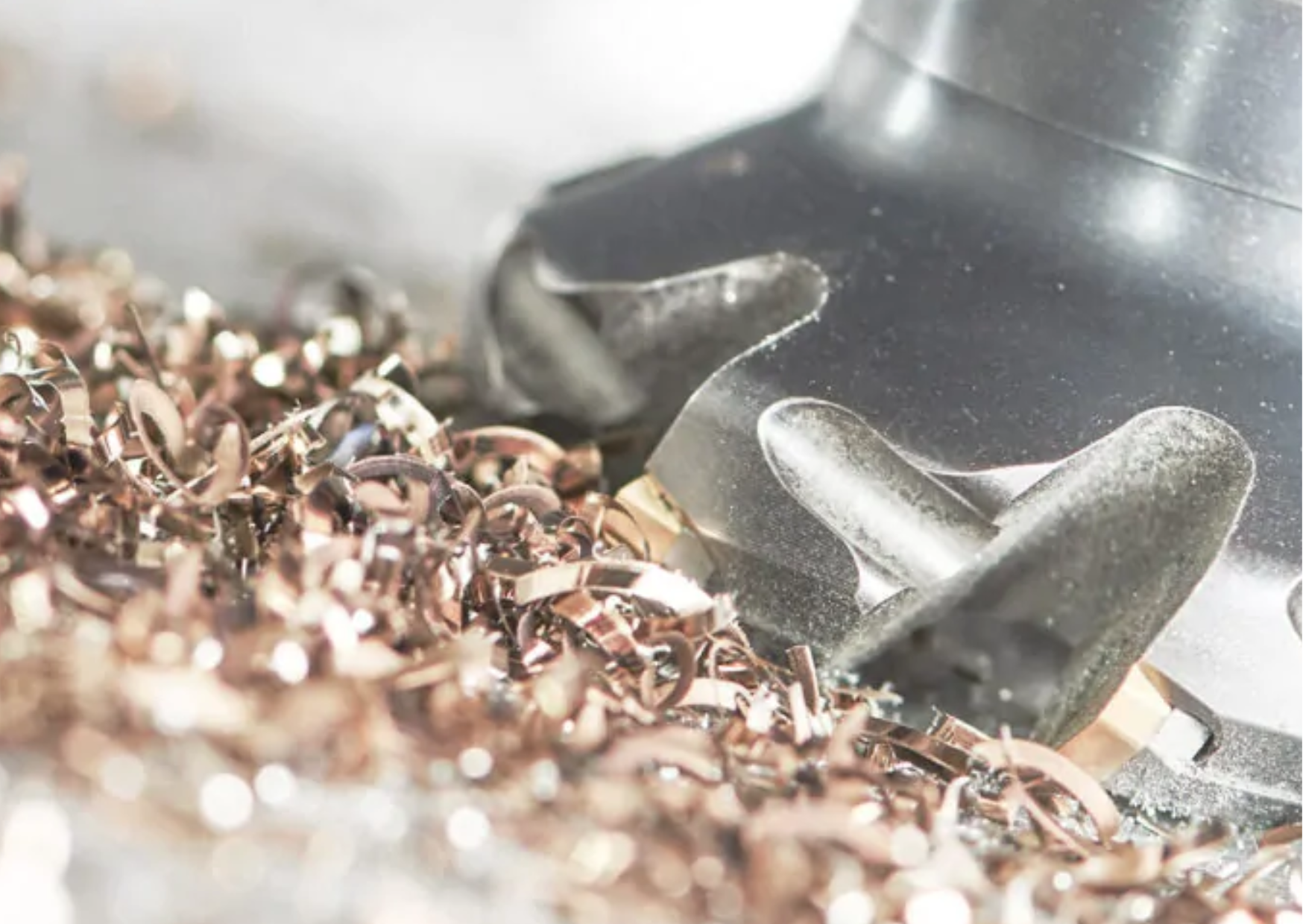
Corrosion-Resistant Steel
Materials
Materials / Corrosion-Resistant Steel
Stainless Steel and the Challenges Associated with Working with the Material
Corrosive-resistant steels include a range of steel grades characterized by high resistance to corrosion. These qualities make it ideal for use in medical equipment and in the chemical and food processing industries. Because of its tendency to fuse with the tool cutting edge (built-up edge), it is considered difficult to machine.
Corrosion-resistant steel – hygienic but difficult to machine
Corrosion-resistant steel, also known as VA steel, Inox, and stainless steel, contains at least 10.5% chromium. The chromium must be dissolved in an austenitic or ferritic solid solution. A common grade is austenitic-ferritic stainless steel. The passivating effect of the chromium oxide layer makes the material highly resistant to oxygen and acid. This layer can be further stabilized by adding more chromium, and even greater stability can be achieved with nickel and molybdenum.
Here are a few main stainless steel grades and their challenges:
- Duplex (1.4462): A nitrogen-alloyed V4A chromium-nickel steel in the ISO M group of austenitic-ferritic stainless steels. It is high-strength and more ductile than stainless chromium steel. Challenges include poor chip control, crater wear, quality fluctuations, and difficulties in achieving high surface quality.
- X6CrNiMoTi17-12-2 (1.4571): An austenitic stainless steel from the ISO M group, also part of the V4A chromium-nickel steels. Suitable for temperatures up to 550°C, it is easy to forge and weld and suitable for low-temperature applications. Machining challenges include tool adherence (built-up edge), chip breaking issues, poor surface quality, and crater wear.
- X5CrNi18-10 (1.4301): A martensitic stainless steel in the V2A chromium-nickel steels. It is relatively soft, non-ferromagnetic, and easy to process, commonly used in medical equipment and the food processing and chemical industries. Challenges include poor chip breaking and quality fluctuations.
Due to its toughness, low thermal conductivity, and other properties, corrosion-resistant steel is typically more difficult to machine than other steel grades. Some corrosion-resistant steels also tend to work-harden, complicating drilling, milling, and die-cutting.
With ZCC Cutting Tools (ZCC CT) products, it is possible to machine corrosion-resistant steels efficiently. We offer a wide assortment of high-quality cutting tools for turning, milling, and drilling to meet your specific needs.
